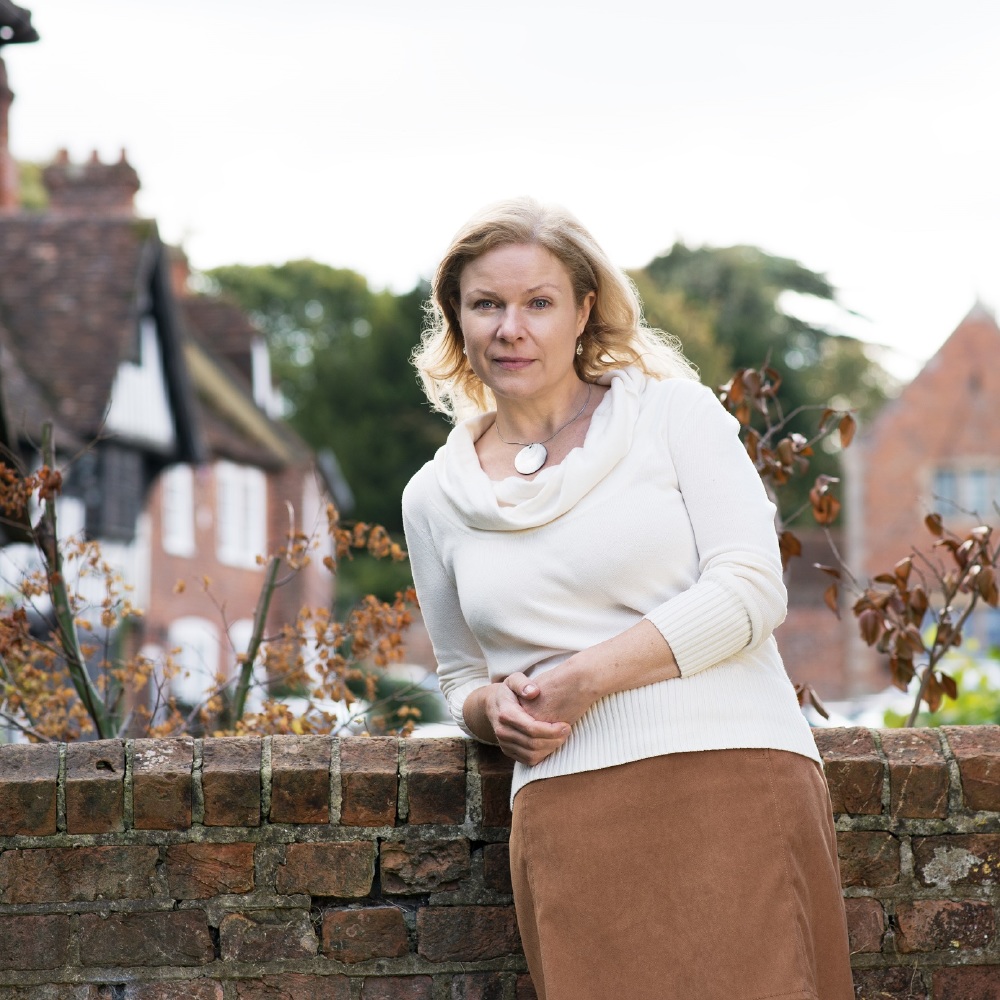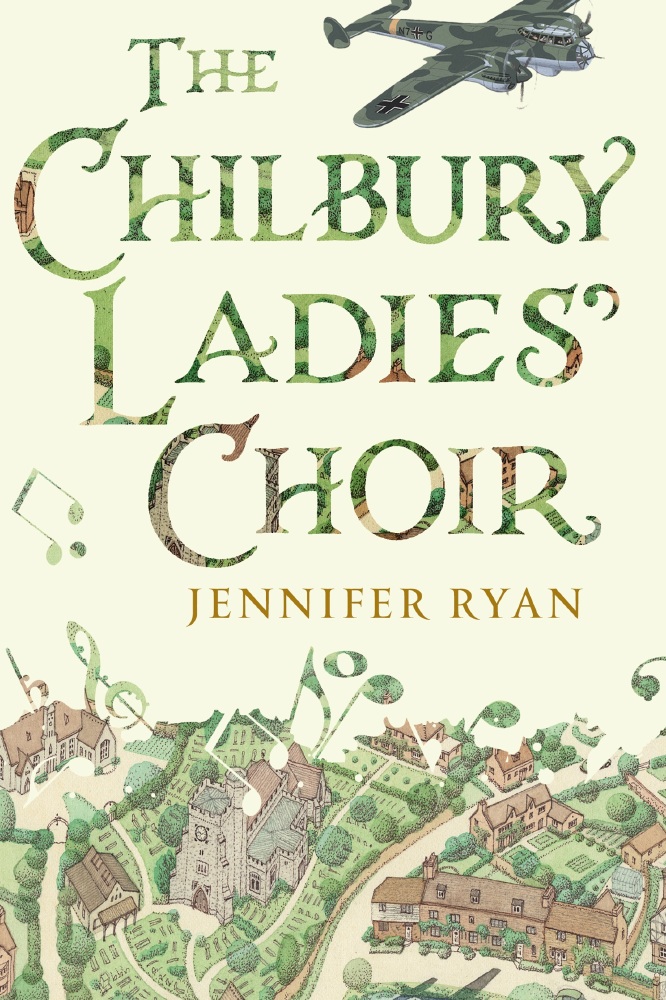Writing a book is a wonderful, yet often lonely business, especially when writing a book about togetherness and the power of camaraderie, like The Chilbury Ladies’ Choir. After spending days laboring in front of a laptop in an empty room, I can quickly become fraught with plot-related anxieties, character qualms, voice worries, and that omnipresent doubt: will anyone like it?

Jennifer Ryan By Philippa Gedge
This is where my team steps in.
My number one helper is my sister, always on the end of the phone or email in Glasgow, Scotland.
“Email it over, and we’ll see what we can do with it,” she’ll say after I bluster through a plot problem, her voice as soft and reassuring as a freshly-washed fleece blanket. “Just send what you’ve done. We’ll have a place to start, even if it doesn’t work straightaway.”
She reads everything I write as I go along, so she always knows where the plot is going, what the characters are up to, and how the book should work. This means that I can simply phone her up and launch into a problem without having to provide backstory.
“Help! I need the Chilbury Ladies’ Choir to sing better! Venetia is too vile! Mrs. Tilling needs more oomph!” I’d panic down one end of the phone.
“Let’s stand back and think about each problem one at a time,” she’d say. Exactly what I need to hear. Calm, calm! Refocus, refocus!
My sister, in return, loves to help. “It’s really fun!” she laughed when I called her to tell her about this article. “I get to play God with your characters!” She’s a massive reader, and I’ve always been in awe of her voracious reading and phenomenal literary know-how. Not only has she read all the classics, but she reads all the books shortlisted for the major novel prizes every year, as well as dipping into new releases. The very best reading and editing partner one could ask for.
My huge and hearty thanks go out to her. She must have read The Chilbury Ladies’ Choir, all told, four or five times, some parts many, many more. Her advice was always spot on, and her comments and suggestions not only ingenious and but often invaluable. Sometimes it’s difficult to take advice from other people—especially when it may not be advice you’d like to hear—and it always helps if the person it’s coming from has a good understanding of fiction writing, books in general, and what you in particular are trying to achieve.
A few years ago, I took a part-time postgraduate course in fiction writing, and during that time I was lucky enough to become part of a small critique group: four women of different ages all trying out different ideas in fiction writing. One of the best things about the group is that we all know that we are competent enough to give advice and suggestions for each other’s work. Most of us took the same classes, and we often refer back to them when giving advice.
Also, over the years we’ve come to fully understand what it is that each of us is trying to achieve, so that we have an idea about the audience and publishers, and so can give suggestions according to their specific objectives. It’s fascinating to view other people’s work and act like a fiction doctor for them. Sometimes thinking about their work can also provide some clarity about your own; how better to tackle the different aspects of plot, setting, character, voice, and dialogue that come together to produce a fully functioning piece of fiction.
These days my critique group and I are all firm friends as well as critique buddies, and our critique meetings are as much about seeing each other and catching up as they are about going through the writing. We meet up every month, and there’s always something to critique, and more than often some big event in someone’s life to discuss. The best part is that we all love a good laugh, and the wit and fun of our conversation brings something of a magic into the whole writing process.
When I sit behind my computer screen, instead of feeling alone and vulnerable—as a writer most surely can—I am infused with the warmth and camaraderie of my team behind the scenes. I know they’re behind me every step of the way, and that knowledge—that this is as much their project as it is mine—makes the work easier and, importantly, more focused and more fun.
When I first sat down to write a book, I wanted it to be about people coming together, helping each other through bad times, finding fun and enjoyment when things got tough. Making them feel that they had a team behind them all the way. The Chilbury Ladies’ Choir is the result, a team of ladies from World War Two England coming together to sing, and backing each other all the way.
This is how I feel about my team: they are my backbone and support behind me, and I them, and together we can stand strong, write wonderful words, and hopefully, step by step, add some color, life, and warmth to the world around us.

THE CHILBURY LADIES’ CHOIR, by Jennifer Ryan, is published by Borough Press on 23rd February.

